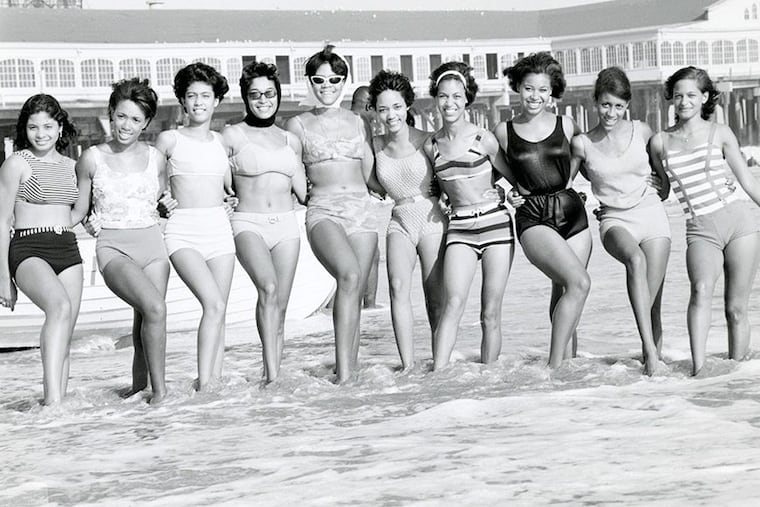Chicken Bone Beach is a reminder of how people find joy even in hard times | Jenice Armstrong
Since blacks weren't permitted to dine in restaurants, they would bring fried chicken, which wouldn't spoil quickly, to the beach. Workers had the task of picking up the discarded bones. They're the ones who nicknamed the area Chicken Bone Beach.

With the holidays looming, I wasn't exactly in the mood to read about a New Jersey beach, even one as historic as Atlantic City's renowned Chicken Bone Beach.
But then I started thumbing through Cheryl Woodruff-Brooks' new book about the once racially segregated Missouri Avenue Beach, and I found myself gazing at all of the beautiful black and brown faces in the photos.
The beachgoers all look so happy. They're smiling and enjoying themselves in the surf. Mind you, until 1964, black folks couldn't dine in most Atlantic City restaurants because of the color of their skin.
Back then, African Americans were still being systematically denied most of the perks of American citizenship, such as voting and full access to most public accommodations. Yet there they were, happily posing for the camera as if they didn't have a care in the world. To me, the photos are a reminder of the resilience of the human spirit and of how even during the most oppressive of times, people still manage to find joy.
I was really struck by that, as was Woodruff-Brooks.
"I think that's what brought so much joy to this project. In my entire schooling, never in one social studies class did I ever see our people just held in such high regard in images," she told me. "Everything I saw, we were downtrodden, beaten, lynched. It was just a breath of fresh air."
After happening across a collection of photos of Chicken Bone Beach taken by the late Philly-based photographer John W. Mosley, Woodruff-Brooks wound up on a circuitous path that eventually led to her writing Chicken Bone Beach: A Pictorial History of Atlantic City's Missouri Avenue Beach (Sunbury Press, $9.99).
Woodruff-Brooks, 53, a legislative assistant with the Pennsylvania House of Representatives, will be in Philadelphia for a book signing and reading at 2 p.m. Sunday at the Art Sanctuary, 628 S. 16th St.
The area along A.C.'s Missouri Avenue became the unofficial black beach during the 1930s. after whites complained about black people's presence in other areas.
"They didn't want them in front of the hotels," explained Henrietta Shelton, president of the Chicken Bone Beach Historical Foundation in Atlantic City.
Since black people weren't permitted to dine in many restaurants, they brought fried chicken because it held up well in the hot sun, and afterward they would bury the bones in the sand. Seagulls would unearth them looking for forgotten morsels. Cleanup crews would then have the task of removing the bones, and they began referring to the area as Chicken Bone Beach. It initially was considered an insult, but it stuck.
During the beach's heyday, from the 1930s until 1964, when civil rights legislation struck down Jim Crow-style segregation, Chicken Bone Beach was the place to go.
Woodruff-Brooks' book includes a rare photo of the Rev. Dr. Martin Luther King Jr. on the beach. I did a double-take at the sight of King dressed in a pair of shorts and wearing what looks like a captain's cap.
"It was like a black Hollywood in its heyday," Woodruff-Brooks said. "You could be walking down the street, you could be in a club on Kentucky Avenue and see one famous black entertainer after the other. I'm talking Nina Simone and Ray Charles — the list just goes on."
Former Philly resident Beverly Wilburn, 75, whose teenage image appears on the cover of the book, has no memory of posing on all fours in the sand with a group of friends.
Nor does she recall the names of those in the photo with her. But Wilburn, now of New York, still remembers the good times she had hanging out on Chicken Bone Beach, and how back then, "nobody even thought to go anywhere else."